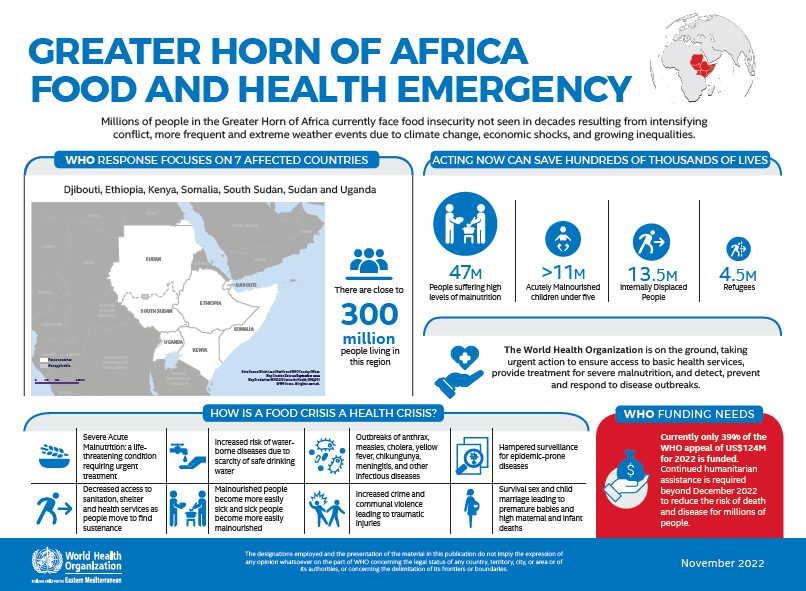13 November 2022 – Climate change is the single biggest health threat facing humanity. It is estimated that environmental factors take the lives of around 13 million people every year. Global warming is influencing weather patterns, causing heat waves, heavy rainfall and droughts.
The Greater Horn of Africa is facing an unprecedented, acute hunger and health crisis driven by climate change, and compounded by conflict and economic shocks. Forty-seven million people in that region are now experiencing high levels of malnutrition or worse – up from 31 million – and more will go hungry as the drought affecting parts of the Region is expected to continue. Malnourished people become more easily sick, and sick people become more easily malnourished.
Climate change is also a major aggravating factor for infectious diseases like cholera and dengue fever. Disease outbreaks are surging in the Greater Horn of Africa, escalating the health emergency. The impact of outbreaks of infectious diseases during emergencies is multiplied, especially when combined with low vaccination coverage and poor access to health services.
WHO and partners are on the ground, ensuring access to basic health services, providing treatment for severe malnutrition, and helping countries detect, prevent and respond to disease outbreaks.



